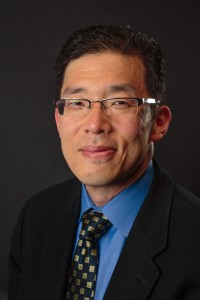by Dr. Calvin Chou MD, PhD
I recently finished service with a struggling intern. This intern (I’ll call her Mary) had “achieved” a reputation for being deficient in clinical reasoning, disorganized, argumentative, and unwilling to receive feedback. None of this had been communicated with me before I began work with her, but on rounds the very first day I noticed there was something – she was touchy when I revised her assessment of euvolemia in a CHF patient whose neck veins were up to the ear lobes. After rounds, my new resident asked to meet privately with me, listed the concerns he had heard from previous residents, and stated how anxious he was to supervise Mary.
Fortunately, I have some expertise in situations like this, having recently co-edited a book entitled Remediation in Medical Education: A Midcourse Correction. (I’ll also be presenting at Hospital Medicine 2015 in March.) Though the details for each case can be very complex, my overall approach to remediation is quite simple and has three components:
1. Every case is different.
2. I need to get to know the person as a person instead of a “weak intern”.
3. I need to find out something that person is doing effectively.
In medicine, we are in the habit of listing the problems, but this approach may not serve us as well when we face a struggling learner: I find that we tend to “medicalize” trainee struggles.
Each time I start on service, I review the definition of feedback with the entire team: specific, nonjudgmental information with intent to improve performance. The implication I take from this definition is that we have the trainees’ backs – we are committed to forming a supportive learning relationship with them in which we assume that everyone’s motives are in service of the best in patient care. This commitment means that I am always looking for and telling them things that they are doing effectively for reinforcement. I think about the time when my kids were small, when I changed my admonishment of “stay away from the electric sockets!” to “I loved the way you stayed away from the electric sockets.”
So I outlined these approaches with my resident. Let’s support Mary when she is doing something effectively. Let’s see if we can notice patterns in her behavior for which we could provide supportive, positive feedback to her. Once she knows we are on her side, not judging her as a failure, hopefully she will see that we are here to support her to become the best physician possible.
Once we started looking for things she was doing effectively, there were plenty of them. Her clinical instincts were actually excellent – it was her presentations that somewhat obfuscated her reasoning. She never lied about what she had seen or done – she would state that the volume exam was still confusing to her, or that she hadn’t had time to see one of the patients that morning, or that she hadn’t ordered a blood test because she didn’t think it was necessary. And I noticed that she had adopted several rigid, worrisome behaviors resulting from her fear that she would be placed under probation. For example, when the resident instructed her to keep close watch on a patient with hypotension, she would not leave the patient’s bedside, even though she knew there were other patients to see.
In the end, we tried to undo some of these maladaptive behaviors and recognized some of her strengths. She may not be the supernova intern that we all dream of having on our services, but she will be a fine doctor.
Even though I have expertise, that doesn’t mean I’m done learning about remediation. I’m very eager to hear your experiences and solutions. How have you turned around learners who need correction? What do you think of being forewarned about having a struggling learner on your service (“feeding forward” information)? What ongoing concerns do you have about remediating learners?
Looking forward to our conversation here via the comments and at HM15 during my session entitled, “This Student Sucks: How to Help the Struggling Learner” on March 30th at 10:35 a.m.
 Calvin Chou, MD, PhD is Professor of Clinical Medicine at the University of California at San Francisco, and staff physician at the VA Medical Center in San Francisco. After undergraduate work at Yale, he received his PhD in microbiology and his MD at Columbia University, and subsequently completed residency training in internal medicine at UCSF. He is director of VALOR, an innovative longitudinal clerkship program based at the VA that emphasizes humanistic clinical skill development for medical students. He also holds the first endowed Academy Chair in the Scholarship of Teaching and Learning at UCSF. As a faculty member and currently Vice President for External Education with the American Academy on Communication in Healthcare, he is nationally recognized for his efforts in education and research to enhance communication between patients and physicians. He has delivered communication skills curricula for providers at medical centers across the country, including Mayo Clinic, Cleveland Clinic, Stanford University, and NewYork-Presbyterian Hospital. His research interests include assessment of curricular developments in clinical skills and clinical skills remediation, forces influencing feedback in medical education, and enhancing communication for learners at all levels. He is co-editor of Remediation in Medical Education: A Midcourse Correction, released in January 2014.
Calvin Chou, MD, PhD is Professor of Clinical Medicine at the University of California at San Francisco, and staff physician at the VA Medical Center in San Francisco. After undergraduate work at Yale, he received his PhD in microbiology and his MD at Columbia University, and subsequently completed residency training in internal medicine at UCSF. He is director of VALOR, an innovative longitudinal clerkship program based at the VA that emphasizes humanistic clinical skill development for medical students. He also holds the first endowed Academy Chair in the Scholarship of Teaching and Learning at UCSF. As a faculty member and currently Vice President for External Education with the American Academy on Communication in Healthcare, he is nationally recognized for his efforts in education and research to enhance communication between patients and physicians. He has delivered communication skills curricula for providers at medical centers across the country, including Mayo Clinic, Cleveland Clinic, Stanford University, and NewYork-Presbyterian Hospital. His research interests include assessment of curricular developments in clinical skills and clinical skills remediation, forces influencing feedback in medical education, and enhancing communication for learners at all levels. He is co-editor of Remediation in Medical Education: A Midcourse Correction, released in January 2014.



What if Mary was a stellar doctor 99% of the time but did lie about patient care repeatedly?
I know a doctor like that.
Kind regards,
Brett Snodgrass, MD
I blog at http://DrSocial.org; a website where people can find a doctor.
Thanks for writing, Brett.
You bring up an area of high interest: remediating professionalism. In practicing physicians, there has been some work done about how to approach these issues: carefully, thoughtfully, and forcefully, all at once. My personal thoughts:
1) Already there is a good base: stellar 99% of the time is a real strength.
2) Just like getting to know the Mary above as a person is important, getting to know your Mary is also important – you can determine whether this is you as a colleague or a supervisor who has power, or both.
3) Set up regular meetings to celebrate good practices, and at the same time, document lapses clearly (again, colleague-colleague meetings would be wonderfully culture-breaking; most might think the supervisor would need to intervene)
4) When you have the personal and systemic basis for good relationship – doesn’t have to take long, but takes some groundwork that many don’t currently have – bring up the issue objectively, and ask her perspective on the facts.
Fortunately there are many minds greater than mine who have written about conundrums like this:
Wynia, JAMA 2010;304:210-212; Hickson et al, Acad Med 2007;82:1040-1048; and a paper that is posted in Acad Med ahead of print by Binder et al, Preventing and Managing Unprofessionalism in Medical School Faculties.
Good luck.
Anyone else have any similar cases, or divergent approaches?
Also will mention that many smarter people than I have written about this in the past, if you are interested in further reading:
Matt Wynia: JAMA 2010;304:210-212
Gerry Hickson: Acad Med 2007;82:1040-1048
and Renee Binder has written a paper that is published ahead of print in Academic Medicine, called Preventing and Managing Unprofessionalism in Medical School Faculties.
This is an exceptional post. Thank you for your insights. Many of us rush to judgment and would be well advised to follow your process for remediation.